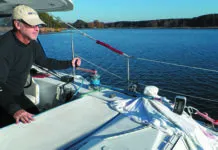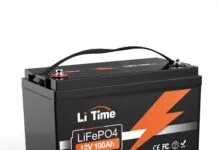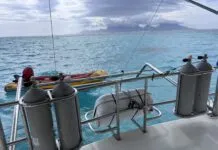Gas detectors are not magic gadgets, quantifying specific chemicals and then alarming when they reach a precise level. Because of the simplicity of the detection algorithm, sensors are subject to interferences from other gases, some harmless and some that are themselves a problem.
In some cases the difference is easy to explain; propane sensors are actually flammable gas sensors, so the alarm sounds on anything that will burn.
Carbon dioxide (CO2) sensors measure infrared absorption and thus detect anything that absorbs in the same general range (water, for example). Aerosols damage most detectors, either by clogging filters or damaging the films that make up the sensor. Here are some common causes of false alerts.
Carbon Monoxide (CO).
Hydrogen from overcharging batteries is common. Have the batteries been equalizing? Check that the batter water (electrolyte) levels are correct and that the charge controllers (possibly several) for solar.
Wind, and shore power)are set to the correct battery type. Provide outside ventilation if possible and ventilate while equalizing. Also aerosols and acetylene. Do not mount sensor over battery bank and avoid ignition sources in the battery compartment. Mount CO sensors high because CO and warm exhaust are lighter than air.
Hydrogen
Hydrogen boiling out of equalizing battery can set off a CO alarm.
Carbon Dioxide (CO2).
High humidity is the most common problem. Baking with the hatches closed, portable heaters, CO2 propellants, and high CO2 from bilge areas are other possibilities. Even in dry air, the alarm can take a few minutes to clear. Do not mount in bilge areas or galley.
Propane
Solvents in general and even varnish touch-up can trigger an the alarm. Take it as a hint that you should open a window. Aerosols often use propane or butane as a propellants; Pam is common galley offender. Mount low near gas appliances.
Testing
A test button confirms that the battery is good and that certain circuitry is functioning but tells you little about the health of the sensor. Propane detectors are easy enough to test; take a barbecue lighter, blow the flame out, and waft it past the sensor a few times (there may be a time delay of up to 30 seconds).
Other sensors require special test gasses (available through safety supply houses and industrial vendors like Grainger); however, they are pricey and it makes better sense to replace them every 3-5 years.
Conclusion
When your propane sensor goes off when the propane is turned off, or the carbon monoxide sensor goes off when there is no fuel burning, do not ever assume that the sensor is bad or that the alarm is false. Ventilate the boat vigorously, with hatches open and a large fan if possible.
If the alarm clears, it probably wasn’t a false alarm, you know it works, and it is time to identify the cause. If the alarm does not clear, replace the unit, confident that you are protecting your family. Replace the unit at the recommended interval.
Always assume that an alert is real and react accordingly. Don’t blow it off as a nuisance. Smoke alarms, CO detectors, and propane sniffers have saved countless lives- but that doesn’t mean they are infallible.





































Technology is amazing. Nature gate a lot of creatures superpowers but man is able to create devices that surpass nature. Truly incredible. I have seen gas detectors in action and it’s incredible how sensitive they are. There is pretty much a device for everything so, if you can afford it; you can have worry-free sailing. Thanks for sharing!